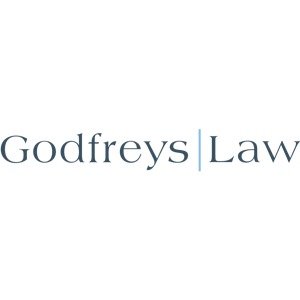Best Equity Capital Markets Lawyers in New Zealand
Share your needs with us, get contacted by law firms.
Free. Takes 2 min.
Or refine your search by selecting a city:
List of the best lawyers in New Zealand
About Equity Capital Markets Law in New Zealand
Equity Capital Markets (ECM) are an essential part of New Zealand’s financial and corporate landscape. ECM refers to the segment of the financial market where companies raise capital by issuing shares to investors. This process can involve Initial Public Offerings (IPOs), secondary share offerings, rights issues, private placements, and other forms of equity fundraising. In New Zealand, ECM activities are regulated by a combination of laws, regulations, and stock exchange rules that aim to maintain market integrity, protect investors, and ensure transparent operations.
Why You May Need a Lawyer
Seeking legal advice is highly recommended when engaging in Equity Capital Markets activities, as these processes are complex and regulated. Individuals and companies might need a lawyer for several reasons, including:
- Structuring and executing an IPO or secondary offering
- Preparing and reviewing offering documents (such as prospectuses or investment statements)
- Ensuring compliance with New Zealand’s securities laws and regulations
- Advising on corporate governance responsibilities for public companies
- Negotiating with investors and underwriters
- Responding to regulatory investigations or market disclosures
- Dealing with shareholder disputes or actions
- Understanding continuous disclosure obligations
- Managing significant share transactions, acquisitions, or mergers
Local Laws Overview
Equity Capital Markets in New Zealand are primarily governed by several key legal frameworks and regulatory bodies:
- Financial Markets Conduct Act 2013 (FMCA): The FMCA is the main piece of legislation overseeing the offer of financial products, including shares. It sets out disclosure, governance, and conduct obligations for issuers and market participants.
- Companies Act 1993: Governs the incorporation and operation of companies in New Zealand, including registration requirements and shareholder rights.
- NZX Listing Rules: For listed companies, the rules and guidelines of the New Zealand Exchange (NZX) impose additional requirements regarding listing, ongoing disclosure, reporting, and corporate governance.
- Financial Markets Authority (FMA): The FMA is the primary regulator, responsible for enforcing market integrity and protecting investors. It issues guidance and monitors compliance with relevant laws.
Participants must navigate rigorous disclosure processes, maintain ongoing transparency, and follow strict timelines and procedures to avoid legal and reputational risks.
Frequently Asked Questions
What is an Initial Public Offering (IPO) in New Zealand?
An IPO is when a private company offers its shares to the public for the first time on a stock exchange, allowing it to raise capital from a broad investor base. The process is regulated by the FMCA and, if listing on the NZX, subject to the NZX Listing Rules.
Do I need a prospectus to raise capital?
Most public offers of shares require a Product Disclosure Statement that meets strict content requirements under the FMCA. There are some exceptions for small offers or offers to experienced investors, but legal advice is recommended to assess eligibility.
What are the main regulatory bodies overseeing ECM in New Zealand?
The Financial Markets Authority regulates conduct and disclosure, while the NZX regulates listed companies and trading activity on its exchange.
Can foreign companies list or raise capital in New Zealand?
Yes, foreign companies can list on the NZX and raise capital, provided they comply with New Zealand’s securities regulations and exchange rules.
What are the ongoing obligations for listed companies?
Listed companies must comply with continuous disclosure obligations, provide regular financial reporting, follow corporate governance standards, and abide by other NZX rules.
What rights do shareholders have?
Shareholders have rights under the Companies Act 1993, such as voting rights, rights to receive information, dividends, and to participate in meetings and resolutions.
What is the role of the FMA in ECM transactions?
The FMA monitors compliance with financial markets laws, investigates misconduct, and provides guidance to market participants. It also enforces penalties for breaches of the law.
What paperwork is needed to issue shares?
Depending on the type of offer, documentation may include a Product Disclosure Statement, board resolutions, subscription agreements, and regulatory filings with the FMA and NZX.
What are the risks of non-compliance?
Failure to comply with ECM laws can result in significant penalties, disqualification of directors, reputational harm, suspension from the market, or even criminal charges in serious cases.
How can a lawyer assist with mergers and acquisitions in ECM?
A lawyer can provide advice on structuring, due diligence, antitrust issues, regulatory compliance, documentation, and negotiations to ensure the transaction runs smoothly and lawfully.
Additional Resources
If you are looking for more information or need support regarding Equity Capital Markets in New Zealand, consider the following resources:
- Financial Markets Authority (FMA) - Regulatory information and guidance for market participants
- New Zealand Exchange (NZX) - Access to listing rules, disclosure obligations, and market data
- Ministry of Business, Innovation and Employment (MBIE) - Insight into business law and company requirements
- Law Society of New Zealand - Directory of qualified lawyers with experience in ECM
- BusinessNZ - Advocacy and resources for New Zealand businesses and investors
Next Steps
If you require legal guidance in the field of Equity Capital Markets, start by evaluating your specific needs and the nature of your transaction or issue. Consider the following steps:
- Consult a lawyer or law firm that specializes in securities or capital markets law
- Prepare relevant documentation and be ready to discuss your business objectives
- Ask your lawyer to explain your legal obligations and ensure compliance with all applicable regulations
- Engage with regulatory bodies such as the FMA or NZX as advised by your lawyer
- Continue to monitor your compliance and maintain transparent communication with stakeholders
Taking professional legal advice early can help you navigate the complexities of Equity Capital Markets law in New Zealand, protect your interests, and ensure a successful outcome for your capital raising activities.
Lawzana helps you find the best lawyers and law firms in New Zealand through a curated and pre-screened list of qualified legal professionals. Our platform offers rankings and detailed profiles of attorneys and law firms, allowing you to compare based on practice areas, including Equity Capital Markets, experience, and client feedback.
Each profile includes a description of the firm's areas of practice, client reviews, team members and partners, year of establishment, spoken languages, office locations, contact information, social media presence, and any published articles or resources. Most firms on our platform speak English and are experienced in both local and international legal matters.
Get a quote from top-rated law firms in New Zealand — quickly, securely, and without unnecessary hassle.
Disclaimer:
The information provided on this page is for general informational purposes only and does not constitute legal advice. While we strive to ensure the accuracy and relevance of the content, legal information may change over time, and interpretations of the law can vary. You should always consult with a qualified legal professional for advice specific to your situation.
We disclaim all liability for actions taken or not taken based on the content of this page. If you believe any information is incorrect or outdated, please contact us, and we will review and update it where appropriate.
Browse equity capital markets law firms by city in New Zealand
Refine your search by selecting a city.

















